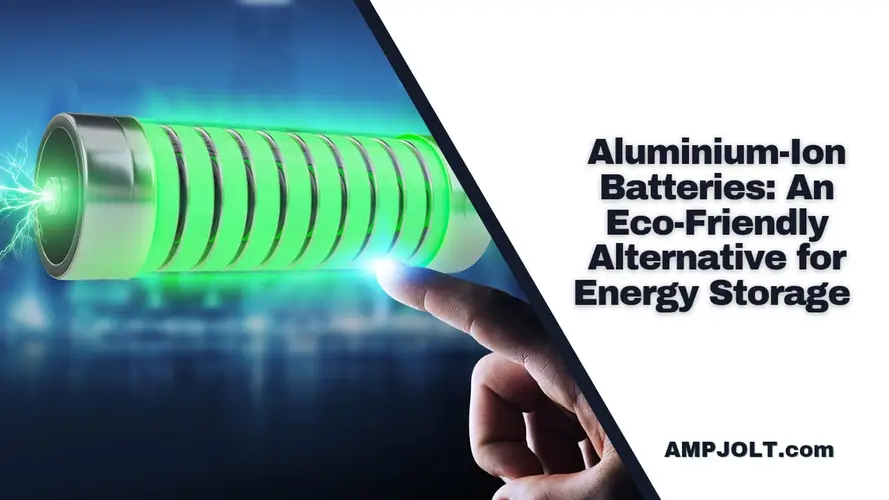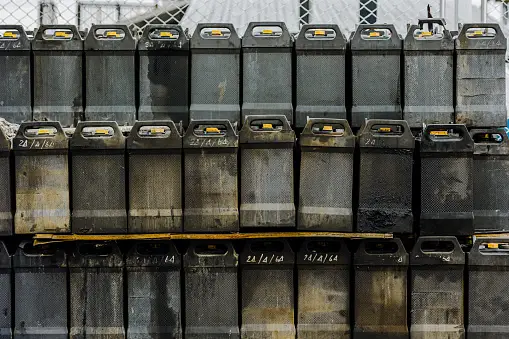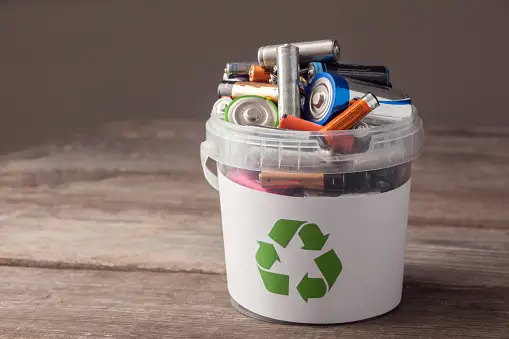What do you need to know before buying the best c…
April 14, 2018

In a world that's battling with the environmental hazards of conventional batteries, the search for sustainable energy storage options has never been more urgent. The toll of harmful components and disposal issues connected with traditional batteries has encouraged a trend toward greener alternatives. Aluminium-ion batteries represent a light of hope in the search of efficient and environmentally sustainable energy storage. This investigation seeks to shed light on the enormous potential that aluminium-ion batteries have as a sustainable solution, proposing a cleaner and more responsible way to addressing our energy demands.
Traditional batteries, which contain hazardous elements, represent a huge threat to the environment. Mining and processing of these minerals contribute to habitat loss and water contamination. Furthermore, disposing of discarded batteries, which often contain toxic compounds, pollutes the land and endangers both human and environmental health. The growing need for energy storage solutions exacerbates these difficulties, forcing a shift away from the environmental burden imposed by traditional batteries.

The aluminium-ion battery is a green marvel that is challenging the status quo of sustainable energy storage technology. Unlike its previous rivals, the aluminium-ion battery offers a cleaner and more environmentally friendly design. This technology eliminates the need for toxic chemicals by employing aluminium ions as charge carriers, offering a possible alternative that is compatible with the global search for green energy solutions. The launch of aluminium-ion batteries marks a turning point in our pursuit for a sustainable and ecologically responsible future.

The interior functioning of aluminium-ion batteries reveals a unique way of energy storage. These batteries employ aluminium ions as charge carriers, which flow between the anode and cathode during the charging and discharging processes. This innovative approach increases energy transfer efficiency while minimizing the environmental dangers associated with conventional battery technology. Aluminium-ion batteries are a cleaner, safer, and more sustainable energy storage option since they do not contain toxic components.
The enticing appeal of aluminium-ion batteries goes beyond their environmental qualities. These batteries have exceptional efficiency and lifespan, distinguishing them from their typical counterparts. Aluminium-ion batteries have a longer cycle life, so they require fewer replacements, resulting in less waste and a more sustainable approach to energy storage. Their ability to hold charge over long periods of time solidifies their position as a powerful participant in the move to cleaner, greener, and more durable energy solutions.
Aluminum-ion batteries' flexibility is exemplified by a wide range of practical uses. These batteries are demonstrating their worth in a variety of applications, from powering electric vehicles to storing renewable energy supplied by solar and wind power. Their versatility, along with their sustainable nature, positions them as a leader in the search for better energy solutions. As organizations and individuals explore methods to lower their carbon footprint, the use of aluminum-ion batteries is a concrete and significant step toward a more sustainable and environmentally friendly energy landscape.
Embracing the green revolution brought about by aluminium-ion batteries is more than just a choice; it is a responsibility. As we say goodbye to the environmental responsibilities of old batteries, we usher in a future in which energy demands are fulfilled by a solution that is not only efficient but also environmentally friendly. The use of aluminium-ion batteries is more than just a technological revolution; it represents a commitment to a cleaner, greener, and more sustainable energy future that benefits both current and future generations.
A: Aluminium-ion batteries offer numerous advantages, including eco-friendliness, enhanced efficiency, longevity, and a safer, toxic-free design.
A: Yes, aluminum is a key component in aluminium-ion batteries, functioning as a charge carrier in the energy storage process.
A: Aluminium batteries surpass lithium counterparts due to their sustainability, longer cycle life, and absence of toxic materials, offering a greener and safer alternative.
A: Aluminium batteries exhibit an impressive longevity, with a longer cycle life compared to traditional batteries, reducing the need for frequent replacements.
A: The adoption of aluminium-ion batteries is growing, but challenges like cost and technological refinement have limited widespread use compared to traditional batteries.
Comments
Write a comment